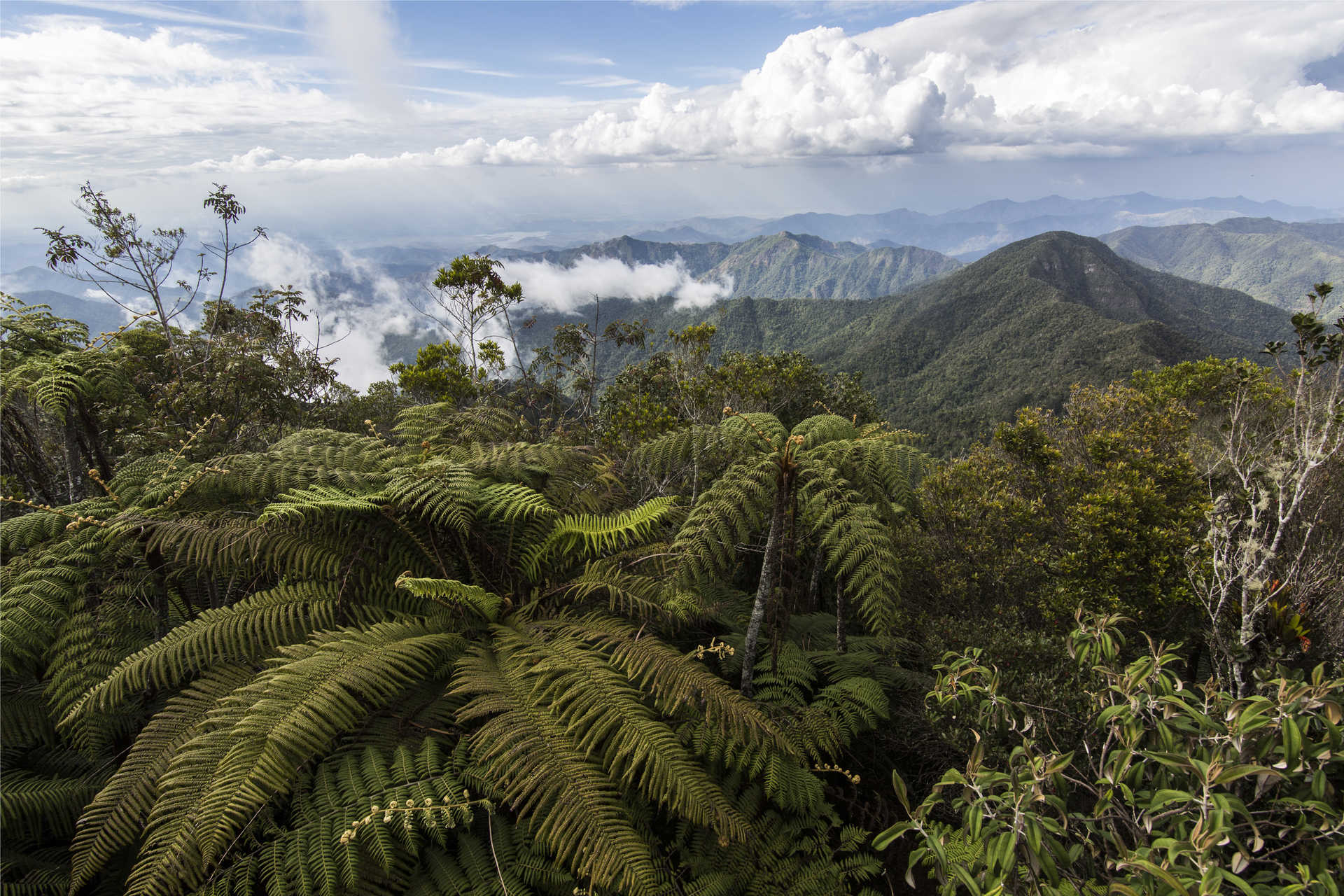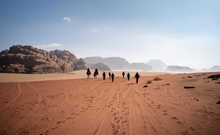Peaks of Cuba
- Trekking

Contact
our UK team

Arrival in Havana where a member of our local team will be waiting to greet you at the airport. Transfer to your hotel in the city where you can meet your guide and the other member of your group before sleeping off the journey.
This morning we wake up in lively Havana and start exploring! We will take a walking tour of the colonial squares in the old city. This really is like taking a step back in time, the cobblestoned streets are dotted with cascading fountains and art galleries can be discovered in little hidden courtyards. The air is filled with music and cigars as you wonder the streets and soak up this captivating Caribbean city. After a guided tour and some lunch at a local restaurant there is plenty of time to explore independently.
This morning there is a little more time to walk the streets of Havana before we transfer to the airport and board a domestic flight to Santiago de Cuba on the opposite side of the island. On arrival in Santiago, we transfer to our hotel accommodation and begin exploring our second Cuban city.
Today is spent exploring Cuba's historic second city. The streets of Santiago climb up and down the hills facing the bay and beautiful old colonial buildings can be seen all over. We will visit the Museum of Piracy and El Morro Castle, a colonial fortress that dominates the narrow entrance to the Bay of Santiago de Cuba. There is also time to visit a local bar downtown and enjoy a mojito and some local music.
Today we head west by minibus to the town of El Cobre where we pause to visit the Sanctuary of La Caridad del Cobre, the Cuban patron saint. We then continue in to the heart of the beautiful Sierra Maestra range and find ourselves in a tropical paradise of forested mountains running along the coast. We reach our hotel for tonight and have lunch before heading out to explore our new surroundings. Don't forget to bring your swimming costume this afternoon, our hotel is just 25m from the stunning El Salton waterfall where deep turquoise pools are too much to resist.
This morning we will jump back on the minibus and continue our journey along the Sierra Maestra range. We stop off in the historic town of Bayamo and enjoy a tour of the central park and local squares before pausing for lunch at La Bodega restaurant. In the afternoon, we return to the mountains and settle in at Hotel Santo Domingo in the western Sierra Maestra.
We set off at 8am to reach el Alto Naranjo and begin our trek to La Comandancia de la Plata, the remote headquarters of Fidel Castro during the guerilla war of the 1950s. After touring the site, we continue to La Platica, a farm in the mountains where we can spend the night.
Today is the day we climb to the highest peak on the island, 1974m Pico Turquino. This is going to be a tough day with well over 1400m of vertical ascent to complete. We leave early in the morning and trek for 4 hours to reach Aguada de Joaquin, the mountain refuge where we will be sleeping tonight. From there another 3-4 hours of trekking will take us up to the summit. As we gain height, the views of the surrounding mountains, jungle and Caribbean sea beyond are spectacular. At the summit we take some time to enjoy this awesome location before returning to our refuge at Aguada de Joaquin and settle down for the evening.
This morning after breakfast, 4 hours of hiking will take us back to the road at El Alto del Naranjo and we say farewell to the beautiful Sierra Maestra. We use 4x4 jeeps to reach Santo Domingo and pause there for lunch. Jumping back in our minibus, we set off for Camaguey which is a drive of around 4 hours. On arrival in Camaguey we settle in at our hotel for a well earned rest.!
We start today with a tour of the old town, Camaguey has many old colonial squares and churches and is a fascinating place to explore and take some photos. We then continue our journey toward the Escambray Mountains, pausing for lunch in Sancti Spiritus and enjoying a short walk along the boulevard. We end our day in a place called Jarico in the Banaos natural park, amidst the stunning Sierra Escambray.
Today we begin to explore our second Cuban Mountain range, the idyllic Sierra Escambray. From our accommodation in Jarico, we trek up the valley for 3 hours to reach La Sabina, a farm on top of the mountain where we will be sleeping tonight. After lunch we head out again to continue exploring the area. This evening we can relax on rocking chairs on the verandah and gaze out at the wonderful view down the valley from the farm.
NOTE - On this day we can leave the bulk of our luggage at Jarico and carry only what we need for a one night stay at the top of the mountain.
After breakfast we begin our descent back down to Jarico. On the way down we make a stop at the river where the deep natural pools of La Bella waterfall are perfect for diving and swimming. At Jarico we collect our luggage and have lunch before setting off for Trinidad. The drive is roughly 1 hour and we arrive at a private house where a lovely local family will be our hosts for the night.
Today is a day of pure relaxation. We have free time in the morning to explore the city and in the afternoon we drive to Playa Ancon, one of the most beautiful beaches of south Cuba. Strolling along the beach, swimming and sunbathing are the only things you need to worry about today. In the late afternoon we return to our hosts house in Trinidad.
We take the road for the Bay of Pigs today, stopping at the city of Cienfuegos, known as the Southern Pearl. This neoclassic city was founded by French families in the 19th century and you can clearly see the French influence in the squares and architecture. We continue to the Zapata swamps and stop off at the Bay of Pigs for a swim and some lunch. We end our day in a small, peaceful village by the sea called Caleton. We are accommodated in a private house where our hosts will provide a delicious evening meal.
Today we depart Caleton and drive back to Havana to catch our return flight home. It is a leisurely morning with time to enjoy breakfast and walk along the white sand beach before boarding the vehicle. Transfer to airport.
Want to ask us a question or book a private trip? Don't hesitate to contact us!
Contact us